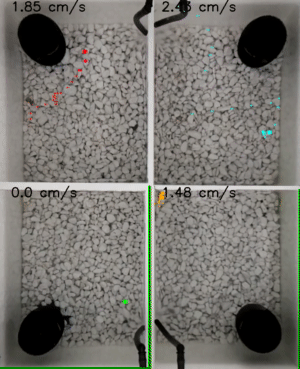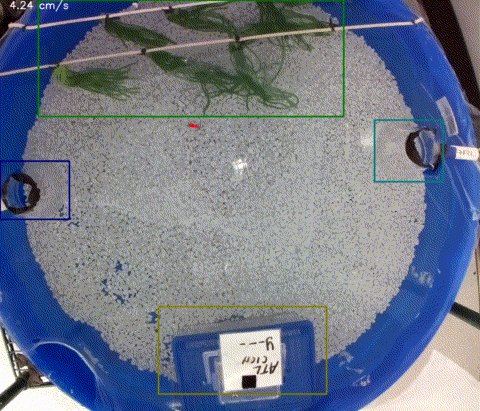Developmental drivers of behavioral individuality.
You are unique, just like everyone else. Individuals exhibit complex and dynamic patterns of behavior. These behavioral patterns have been shaped by cues the individual receives from their genes, their parents and their own interactions with their environment. Our goal is to understand how individuals use, integrate and value these different sources of information to build their behavioral strategies from both a phenotypic and mechanistic perspective.

It is perhaps surprising how little we understand about the pattern and process of individual behavioral development. We take advantage of a unique fish species to address this: the Amazon molly (Poecilia formosa). This incredible little fish naturally reproduces clonally producing all-female broods of genetically identical animals! The clonal nature of the Amazon molly lets us perform ‘twin studies’ where we can manipulate the experiences of different clones to disentangle genetic and environmental effects on behavioral development. This animal system is especially powerful as it lets us more easily find the signals of the molecular and neurological mechanisms underpinning behavior by removing the additional influence of genetic variation among individuals.


We build high resolution tracking systems that give us nuanced insight into individual behavior and molecular techniques to delve into the cognitive, epigenetic and neurological mechanisms underpinning behavioral decisions. We’re using these methods to investigate key questions about the development of individuality. We are able to quantify many aspects of swimming, foraging behaviors, and social behaviors such as schooling and aggression. Additionally we manipulate the environment the animals experience by introducing different food, predator cues or social partners. In particular, our lab focuses on testing predictions derived from quantitative theory including Bayesian updating, signal detection theory and information theory to understand how and why individuals integrate information over their lifetimes to adjust their behavioral strategies. Current projects in the lab are focused on answering:
- When does individuality in behavior emerge during development?
- How do patterns of individuality change over ontogeny?
- Do individuals attend more to social or private information and how do they integrate multiple sources of information?
- What information do individuals get from other individuals and other species?
- How do individuals alter their behavior in response to positive or negative social interactions?
- What are the cognitive and neural mechanisms underlying behavioral change?
- Are the same neural regions and circuits that respond to a single experience also involved when these experiences are repeated?
- Can we model computational algorithms that can predict future behavioral change in a simplified environment?
Please see our publications page for all our work!